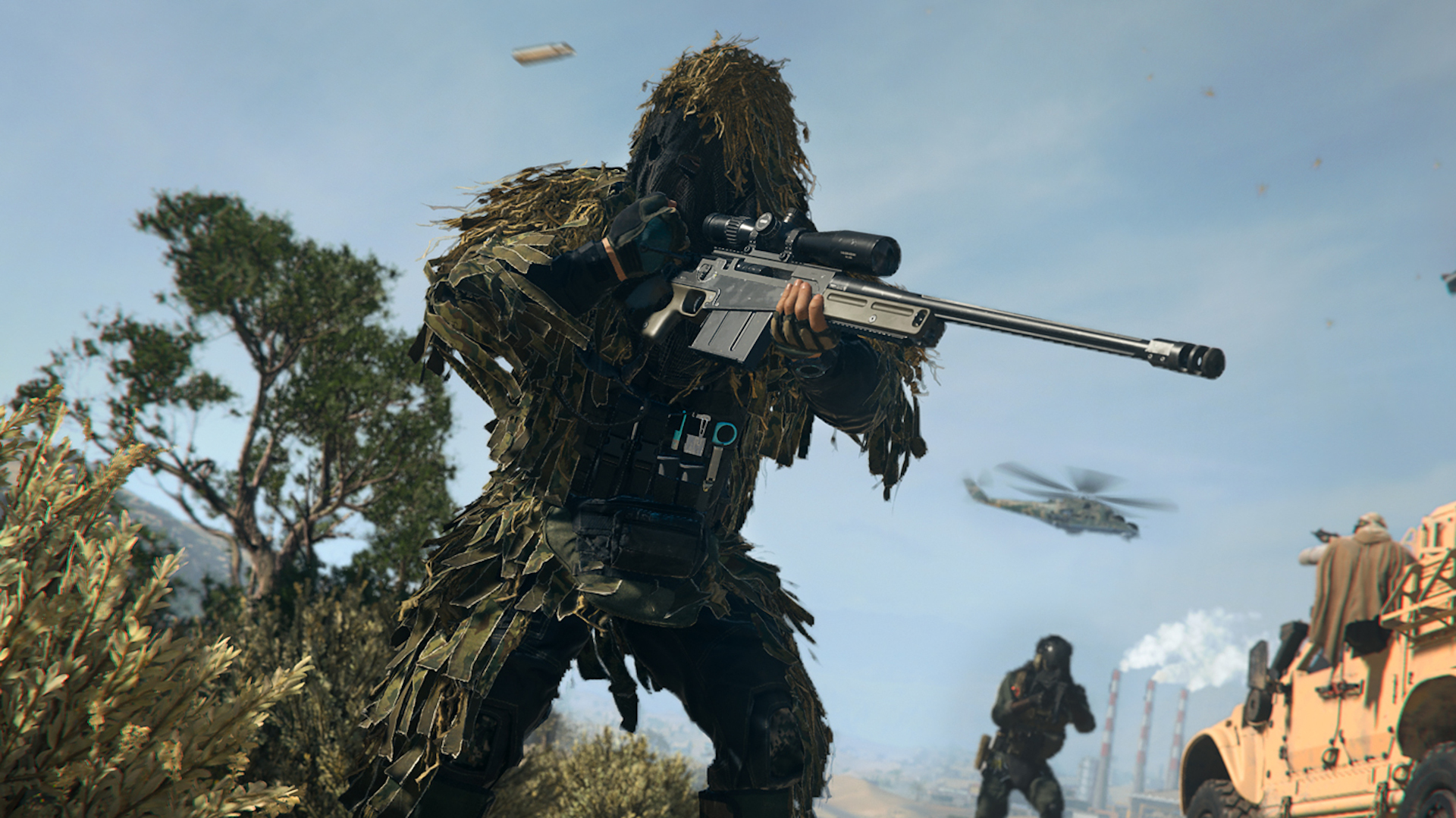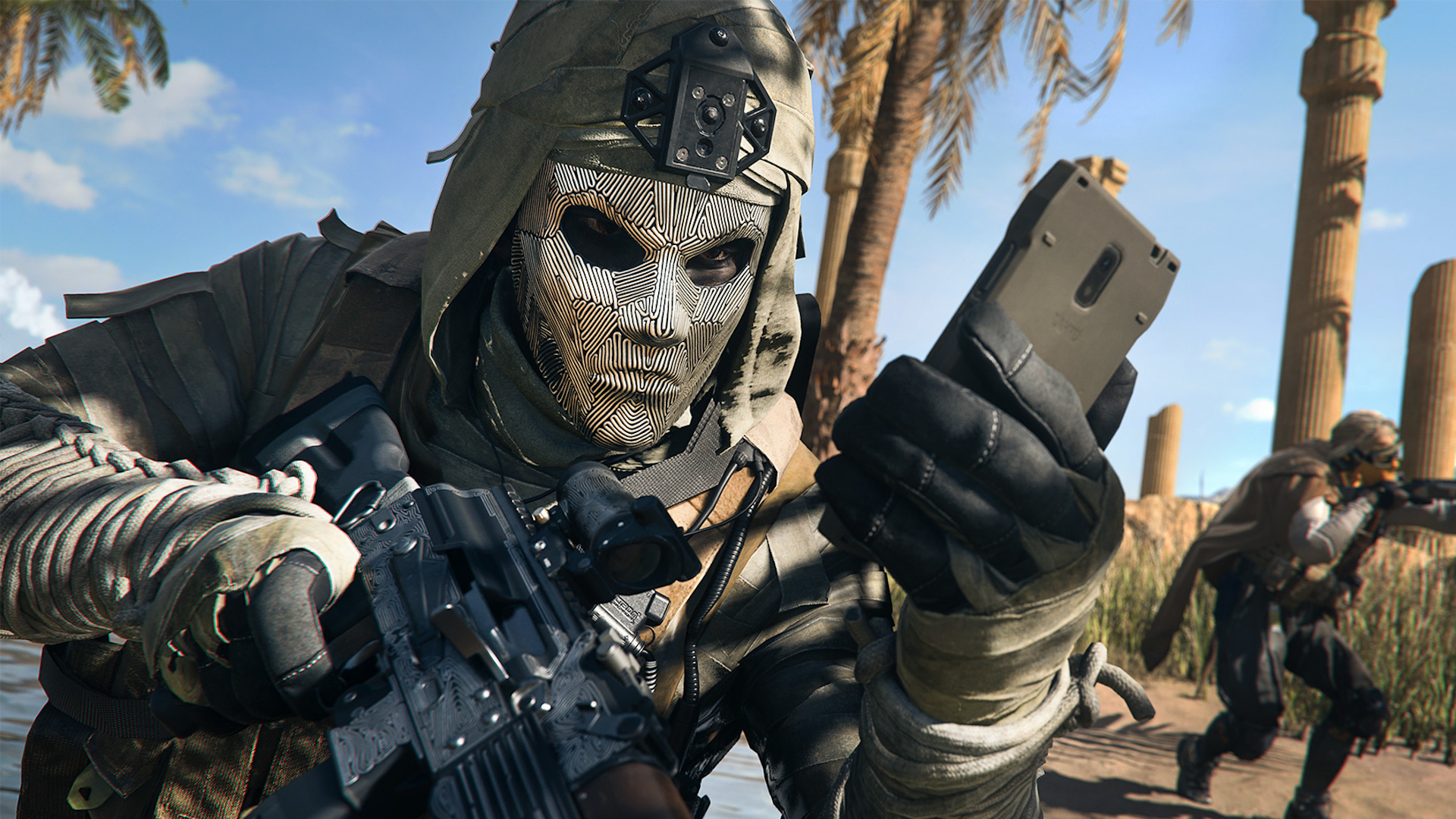Warzone 2's DMZ mode feels like Call of Duty's future
Heavily inspired by other games it may be, but Infinity Ward has hit a sweet spot between gung-ho spectacle and teamwork.

I love competitive shooters generally but, that first rush of PUBG wonder aside, I've never really got on with battle royale. PUBG gave me exactly what I liked about DayZ in bitesize chunks rather than hours-long treks, but Fortnite's floatier build-based style never really appealed, and even Apex Legends' rock-solid fundamentals couldn't win over my evenings.

Warzone 2 loadouts: Best guns
Warzone 2 DMZ: New mode guide
Warzone 2 unhinged: Hectic BRs
Warzone 2 perks: Perk packages
Warzone 2 contracts: Turn it in
Warzone 2 cash: Make bank
Ultimately I think I don't like having 99-149 other players around, or the way the format controls your movement with the shrinking circle gimmick. The most fun I ever had in Call of Duty: Warzone was after we'd worked out the helicopter spawns, at which point myself and a chum would start every match by rushing for a chopper, finding snipers, then flying to a very tall tower and picking fights until we died. It was brilliant fun, until inevitably the game would kick us away from the spot and we had to enter the chaotic maelstrom of the closing area.
Call of Duty and the Warzone side of it is now so big that, frankly speaking, it can just incorporate the competition, and that's what DMZ does. The Escape From Tarkov comparison is inevitable and fair, not least because Tarkov is one of the few persistent shooters in recent years to pull me in, and the bare elements of DMZ lift heavily from those design principles.
But DMZ is to Tarkov what PUBG was to DayZ. Part of Tarkov's appeal is that it is truly hardcore. It's a game where the dirtiest, sneakiest, campiest players ultimately win out, and where the consequences for laziness are nearly always fatal. Tarkov is impossible to play casually.What ultimately took me out of Tarkov was how much time I had to spend outside of the game figuring out how it worked: it's absolutely byzantine in construction, bewildering at first in its array of items and their uses, and the RPG layer atop the action.
DMZ is a mode with consequences (you lose your gear when you die), where you go about fulfilling certain mission criteria and unlocking new ones, and is built around a mix of AI encounters with the occasional thrill of other humans in the mix. Most importantly: there is no circle. All of these things are pure Tarkov. But what's absolutely different about DMZ is how simple and accessible it makes this persistent structure: plainly setting out your next options, and giving you a focal point for each 15-minute run through the map.
It feels like a revelation. Everything I like about COD, mainly those liquid Infinity Ward controls, and everything I like about that kind of persistent structure of missions and narrative progression layered atop a shooter, with enough density and variation on the map that every run so far has been a genuinely novel experience.
I don't even think I saw actual humans in DMZ until around three or four matches in (which may be by design) and, even now, the rhythm of each DMZ match is much more about hopping from objective to objective and taking on the AI squads. The AI goons are great encounters in themselves: they can be pretty tough and, particularly if you go in gung ho, will rapidly surround and down your squad with little hesitation about finishing off downed players. There was something quite humbling about an initial encounter where I took them lightly, ran in like Leeroy CODboy, and got absolutely blasted to smithereens (then watched my squad wipe as they tried to revive me).
Keep up to date with the most important stories and the best deals, as picked by the PC Gamer team.
It's this pace that the DMZ mode is creating I find irresistible as much as the encounters. It's so pleasing how you move from exploration to planning to combat to looting without the game forcing you in any one direction. Other games have these exact elements but the way DMZ stitches them together is quickfire and has incredible forward momentum.
And then there's the secret sauce: the player count. This is the single best thing about DMZ, that it's essentially a co-op mode that becomes competitive when you least expect it. There are a few touches that'll probably irritate purists—like the way it warns you when other players are near a stronghold—but personally I find that warning message on the screen exhilarating, and it's rare enough (and only in certain areas of the map) that it's one of those mindset-changers.
DMZ takes you through everything good that Warzone 2 has to offer, but does it in a differently jumbled way each time. It's honestly just a pleasure to jump into Al Mazrah rather aimlessly and footer about between objectives: last night my squad were just messing around when suddenly a bunch of loot-loaded players tried to call in an exfil chopper nearby. "This is a bit like the Division, isn't it" my mate said as we positioned ourselves, watched them shoot a few AI, then took them down in a burst of co-ordinated fire and looted with delight.
The number of other games I've referenced when talking about DMZ says it all: this is a magpie mode, but one that seems more than the sum of its parts. Battle royales never grab me long-term and, I can't believe I'm saying this, but the best bit of Warzone 2 may well be the narrative-focused genre mashup that is DMZ.
This actually feels more like Call of Duty's future than the original Warzone ever did, though of course the battle royale mode will continue alongside DMZ (and doubtless prove more popular). It's something that has endless potential to be built upon, and emphasises camaraderie and teamwork over head-to-head competition, while still including enough of the latter to get your blood pumping once or twice a match. In our review of Modern Warfare 2 Morgan Park called it the best entry in years and rightly credited Infinity Ward as the premiere developer the series has: DMZ shows just how good this talent is.

Rich is a games journalist with 15 years' experience, beginning his career on Edge magazine before working for a wide range of outlets, including Ars Technica, Eurogamer, GamesRadar+, Gamespot, the Guardian, IGN, the New Statesman, Polygon, and Vice. He was the editor of Kotaku UK, the UK arm of Kotaku, for three years before joining PC Gamer. He is the author of a Brief History of Video Games, a full history of the medium, which the Midwest Book Review described as "[a] must-read for serious minded game historians and curious video game connoisseurs alike."

